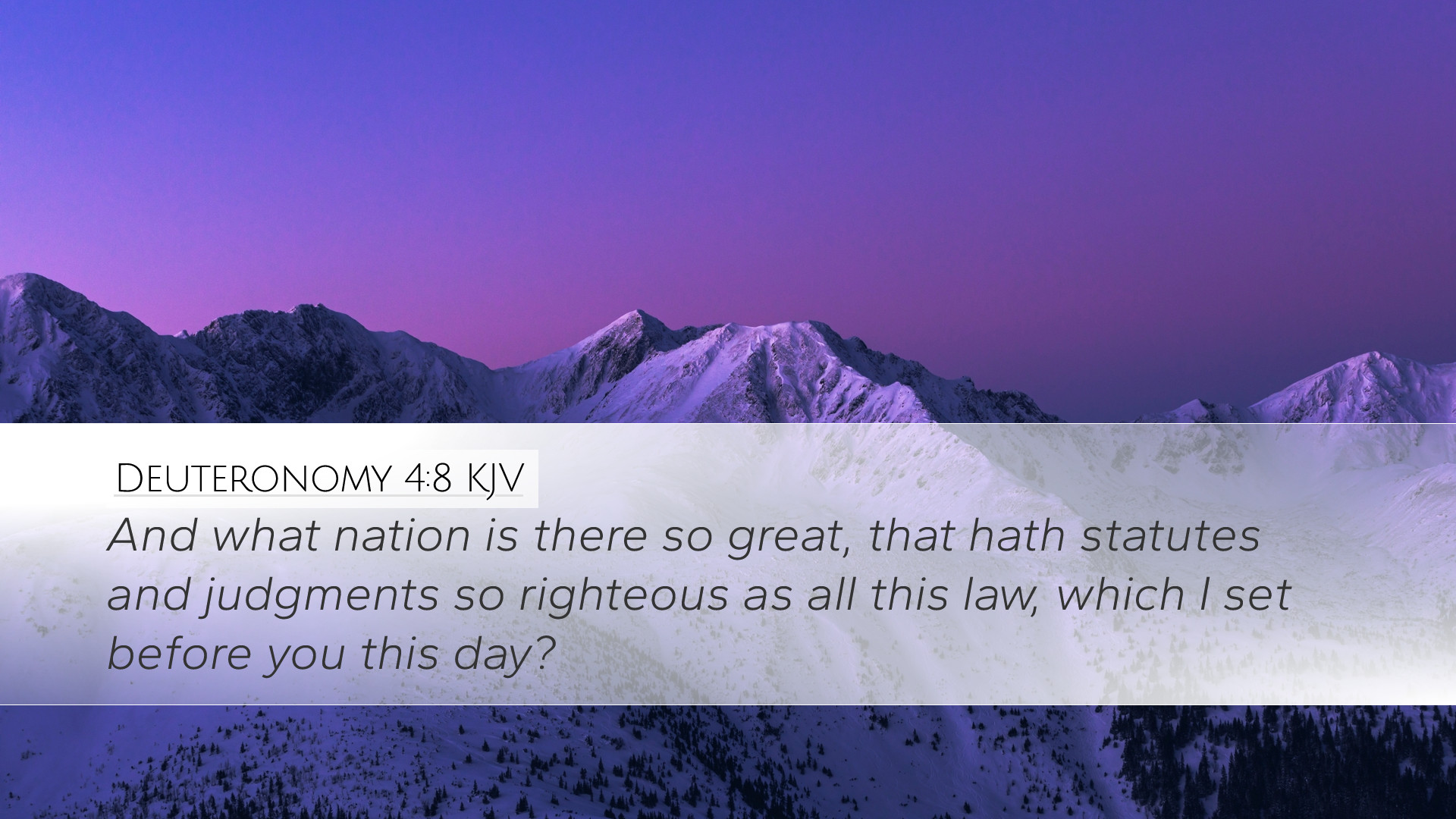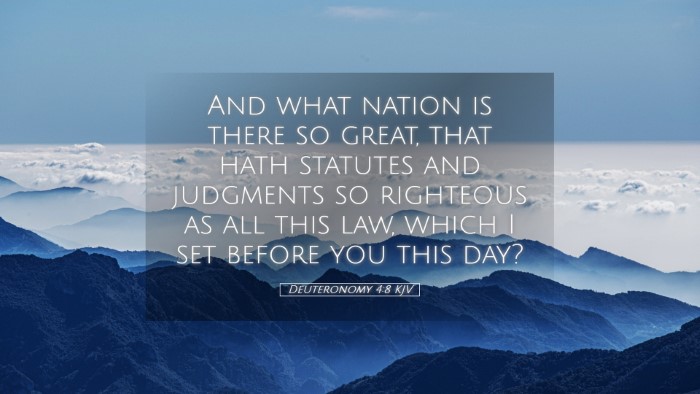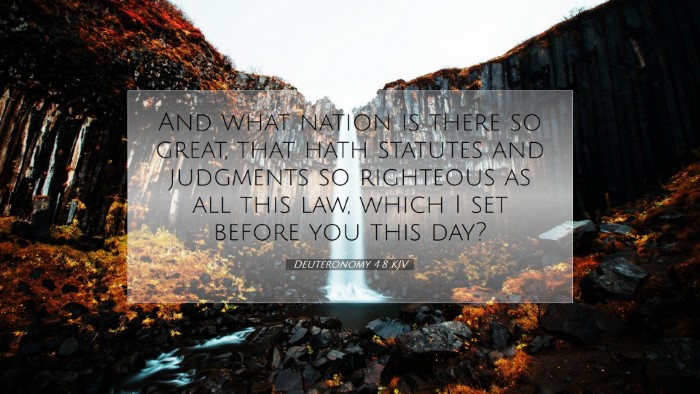Commentary on Deuteronomy 4:8
Verse: “And what nation is there so great, that hath statutes and judgments so righteous as all this law, which I set before you this day?”
Introduction
The verse under consideration, Deuteronomy 4:8, is a pivotal declaration made by Moses to the Israelites as they stand on the verge of entering the Promised Land. It serves as a profound reminder of the uniqueness of their covenant relationship with God and highlights the importance of His laws. This commentary synthesizes insights from multiple public domain sources to provide an enriching exploration of this verse, beneficial for pastors, students, theologians, and Bible scholars.
Contextual Overview
In the broader context of Deuteronomy, Moses delivers a series of discourses emphasizing the need for Israel to adhere to God's commandments. This reminder comes following the giving of the Law at Sinai and is intended to reinforce the significance of obeying the statutes that have been provided. The verse not only calls attention to the laws themselves but also to the distinctiveness of Israel as a nation under the divine governance of God.
The Greatness of Israel’s Law
According to Matthew Henry, the greatness of Israel's statutes and judgments stems from the divine origin of the law. God Himself is the Lawgiver, making the commandments not only just but also filled with wisdom. The righteousness of these laws is a reflection of God's holy character. Henry emphasizes that while other nations might have legal systems, none possess the sacredness and divine approval that Israel's laws offer.
- Divine Wisdom: The laws are perfect, addressing both the moral and social needs of the people.
- Universal Application: They serve as guiding principles not only for Israel but also as a testimony to other nations regarding God’s justice.
Comparative Analysis with Other Nations
Albert Barnes observes how this rhetorical question underscores the unparalleled nature of Israel’s relationship with its God. While other nations may have their own codes of conduct, they lack the divine revelation that Israel has received. Barnes points out that the laws of Israel, characterized by justice and righteousness, stand in stark contrast to the arbitrary and often tyrannical laws of surrounding nations.
- Contrast to Pagan Laws: Many nations employed laws that did not consider the welfare of citizens but were designed to maintain power and control.
- Light to the Gentiles: Israel is to serve as an example to other nations, as the righteousness of their laws embodies God's character.
The Role of Covenantal Relationship
Adam Clarke emphasizes that the laws given to Israel are part of a covenant relationship, which sets them apart from other nations. The blessings and curses that accompany obedience and disobedience further illustrate the seriousness of this commitment. Clarke suggests that the moral and ceremonial laws serve as reminders of their identity and purpose as God’s chosen people.
- Identity Formation: The law shapes the identity of Israel as a community dedicated to God.
- Regulation of Worship: Distinct laws regarding worship set them apart from idol-worshipping nations.
The Call to Obedience
The rhetorical affirmation of Israel's statutes admits their greatness and compels obedience. Matthew Henry highlights how Moses does not just present the laws; he challenges the Israelites to consider the implications of their acceptance or rejection of them. The intrinsic value of the law is tied to the conditional blessings for obedience, making it imperative that the nation adhere to them intently.
Significance for Today
For contemporary audiences, Deuteronomy 4:8 serves as a powerful reminder of the importance of divine authority in moral law. In a world increasingly devoid of absolute truths, this verse calls believers to uphold the standards set forth in Scripture. It affirms that God’s statutes remain relevant, providing a moral compass in uncertain times.
- God's Law and Modern Ethics: The principles found in Scripture can guide ethical discussions in modern society.
- Witness to the World: Just as Israel was called to be a light, believers today are tasked with sharing God’s righteousness through their lives.
Conclusion
In Deuteronomy 4:8, the legislative framework given to Israel encapsulates the essence of God’s character and serves as a testament to His counsel for human flourishing. The verse evokes a profound sense of the divine purpose that intertwines faith, obedience, and societal welfare. As such, it remains a valuable text for reflection and teaching across generations.


